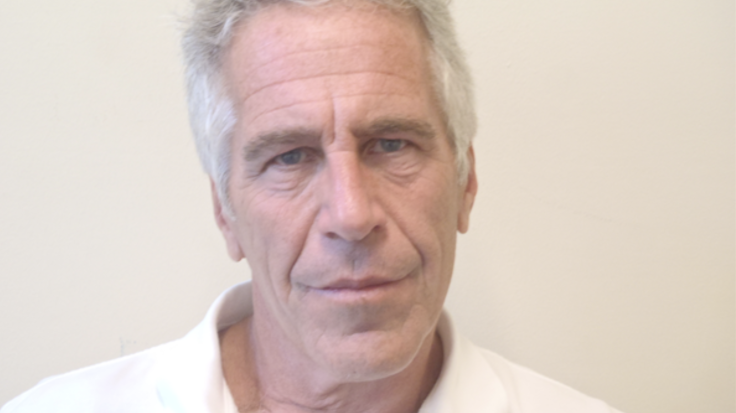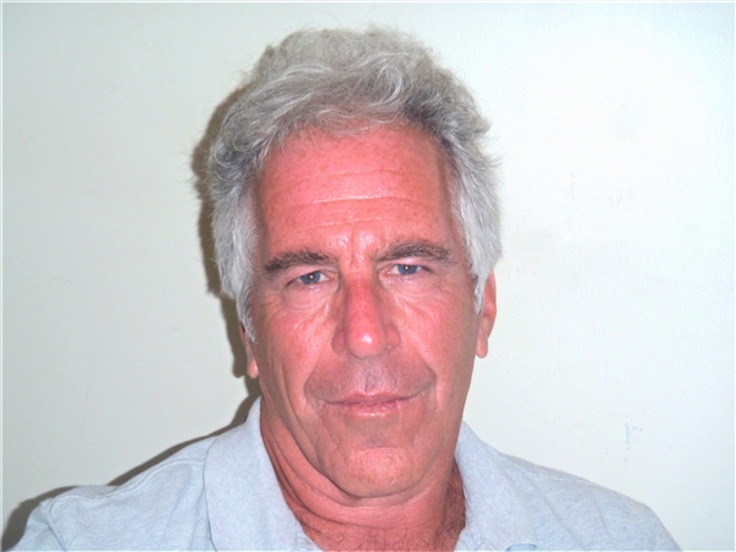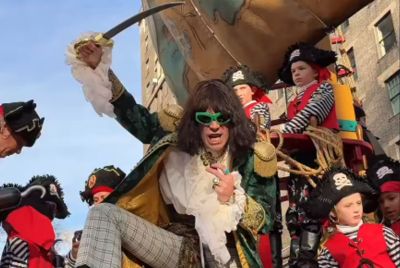Viral Influencer Reveals 'Weird' Sight She Witnessed Living Near Epstein Island And It Might Surprise You
Survivor-adjacent account hints at bizarre tax-evasion tactics on Little Saint James

A former neighbour of Epstein's infamous Caribbean retreat has come forward with a startling claim that could reshape how we view the bizarre layers of secrecy surrounding Little Saint James.
A TikTok user calling herself 'Emma' says she grew up on St. Thomas in the US Virgin Islands, the island closest to Little Saint James, during her twenties, and that she and her family would regularly boat past the notorious compound. According to her, the most surreal sight was the presence of life-size plastic cows on Epstein's island. She suggested these may have been used to exploit livestock tax exemptions if actual livestock had been present.
Her recollection, though anecdotal and not part of any official investigation or court testimony, is striking: a visual symbol so absurd it almost belies the gravity of the crimes allegedly committed on the island.
Living Next Door to 'Pedophile Island'
According to a post recently shared on social media, Emma said she used to live on St. Thomas when she was in her twenties — placing her residence in proximity to Little Saint James, the private island owned by Epstein since 1998. Locals, she claims, referred to the island by its grim moniker, 'Pedophile Island.'
@emma.jobsis Epstein had plastic cows… #epsteinisland #littlestjames #billionaire #jefferyepstein
♬ original sound - Emma Jobsis
In her TikTok video, she recalled seeing what appeared to be plastic cows scattered around the island. She said the arrangement seemed too deliberate to be a decoration and suggested a possible explanation that the cows served as a pretext for claiming livestock exemptions or other tax breaks. She framed the detail as 'weird,' but insisted it was real.
The story taps into a larger atmosphere of hush and suspicion that long surrounded Little Saint James. Even after the shocking allegations against Epstein began to surface, many locals interviewed by media outlets described his presence and activities on the island as 'an open secret'.
Plastic Cows and Tax Loopholes: Is There A Precedent?
The idea that livestock, even plastic livestock, might provide a veneer of legitimacy to secretive island ownership is not entirely implausible in theory. Tax-incentive schemes are part of what allowed Epstein to maintain his properties under a web of shell companies and economic-benefit programmes.
In a civil suit filed by the government of the US Virgin Islands (USVI), it was alleged that Epstein used local tax-incentive programmes to shield his islands from scrutiny, enabling illicit activity to remain hidden under the guise of legitimate business operations.
After Epstein's death, his estate settled with the USVI for more than £82 million ($105 million), including the repayment of tax benefits, a move that underscored how deeply entwined financial manoeuvring was to the case.
But while court documents and lawsuits speak to shell companies, economic incentives, and environmental violations, none make any mention of plastic cows or livestock as part of the official record. The repeated citations of unlawful concealment, environmental destruction, fraud, and trafficking make clear that investigators focused on far graver offences, not hypothetical tax evasion through livestock exemptions.
That said, one former charter-boat operator stated life-size plastic cows being moved daily on the island, though his comments appeared in a media report, not an official case file.
The lack of documentation means the plastic-cows claim remains unverified. But given the layers of shell companies, questionable financial practices, and secrecy that characterised Epstein's operations, the claim, while currently hearsay, is not outside the realm of possibility.
Another Strange Footnote in Epstein's Horrific Legacy
Jeffrey Epstein purchased Little Saint James in 1998, paying roughly £6.2 million ($8 million). Over time, he acquired a second island, Great Saint James, reportedly through a straw purchase in 2016, years after he was a registered sex offender. Prosecutors say this purchase was intended to further shelter his activities at Little Saint James from view and prevent detection by third parties.

Court documents allege the islands were repeatedly used for the solicitation, transport, harassment, and sexual abuse of underage girls and young women. The islands were secluded, private, accessible only by boat or helicopter, conditions that made escape or rescue all but impossible for victims.
Residents and former employees have described strict controls on staff movements and behaviour. Workers often wore plain polos, kept out of sight, and were never allowed inside Epstein's office when he was present.
Against this backdrop, the claim about plastic cows, whether symbolic, practical, or conspiratorial, adds another layer of eerie peculiarity to what was already one of the darkest, most scandalous chapters of wealth, power, and abuse.
© Copyright IBTimes 2025. All rights reserved.




















